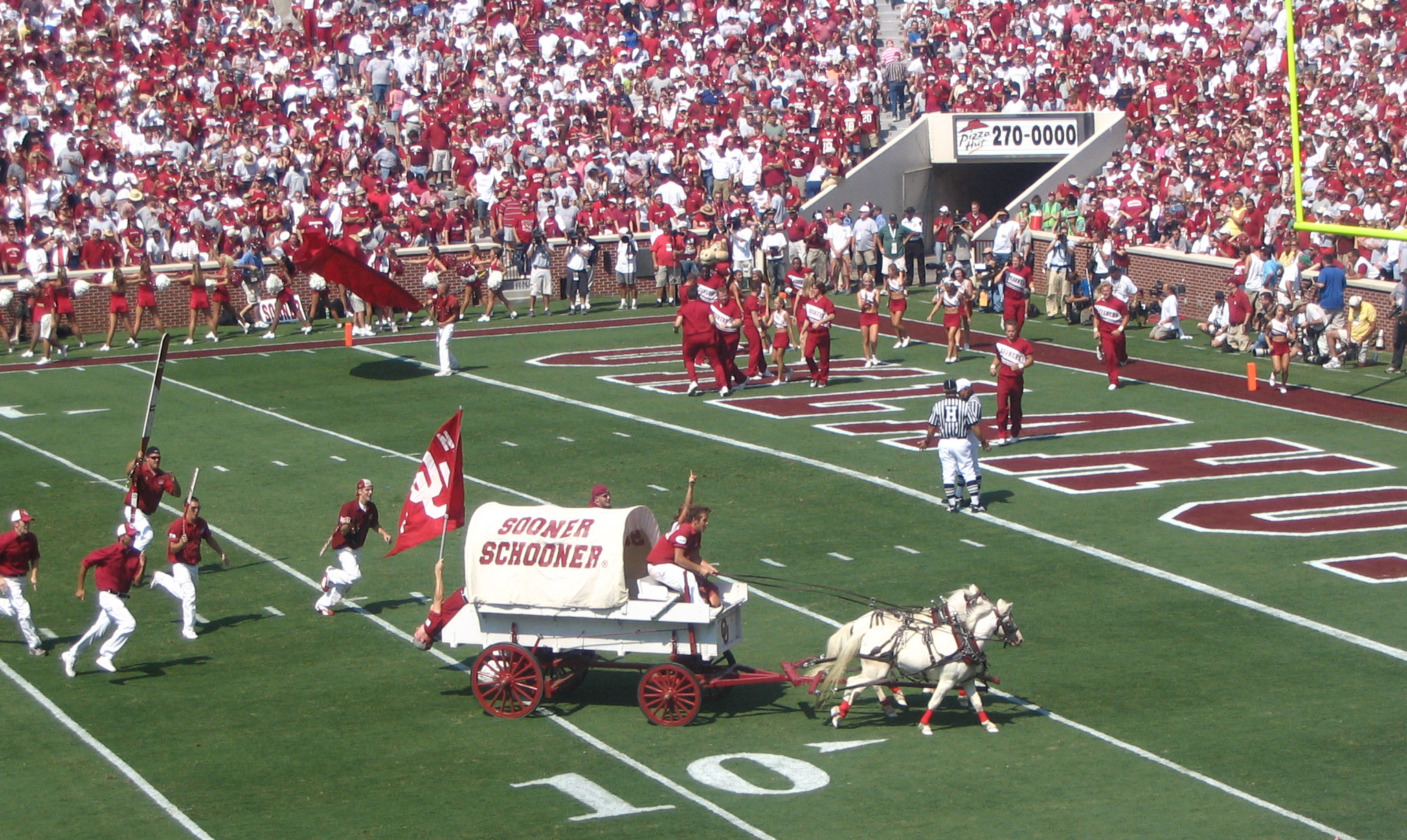

By Asmita - Aug 12, 2025
Oklahoma Sooners quarterback John Mateer is facing scrutiny over alleged Venmo payments linked to sports gambling, sparking widespread attention and potential NCAA disciplinary action. The transactions, involving a former teammate, suggest bets on sports events, which is strictly prohibited for college athletes. Public reaction is divided, with speculation on the severity and consequences of the situation. Oklahoma football is yet to issue an official statement, but the program is reportedly monitoring the developments closely. Mateer's future and the team's prospects could be impacted as the case unfolds, raising questions about athlete conduct, NCAA policies, and the influence of social media.

Oklahoma Sooners via Wikimedia
LATEST
John Mateer, the Oklahoma Sooners quarterback, has recently found himself under scrutiny due to alleged Venmo activity that suggests possible involvement in sports gambling. Screenshots circulating on social media purportedly show Mateer sending payments to a "Richard Roaten" with annotations referring to "sports gambling," including a specific bet labeled "UCLA vs USC" in November 2022. This Venmo account, which features Mateer's image in his Washington State Cougars jersey, showed three distinct transactions before being wiped clean, with all history removed. Richard Roaten appears to be a former Washington State offensive lineman now at Abilene Christian University, though slight discrepancies in the name recordings have cast some doubt on the full authenticity of the transactions. Regardless, the alleged payments have sparked widespread attention as Mateer is poised to be Oklahoma's starting quarterback, and college athletes are strictly prohibited from engaging in sports betting.
The timing of the Venmo transactions coincides with Mateer’s freshman year at Washington State, where he redshirted the season and made limited appearances. The annotated payments seem to suggest that these were for wagers placed on sporting events, a practice strictly banned by NCAA regulations. Given that the names and associated photos match the players in question, the transactions carry serious implications. If confirmed as genuine sports bets rather than playful jokes or pseudonymous payments, Mateer risks severe disciplinary action, including suspension or jeopardizing his collegiate eligibility. The NCAA imposes strict sanctions on athletes who violate gambling rules as it could undermine the integrity of college sports. Despite the seriousness, some analysts and fans speculate these Venmo notes might have been tongue-in-cheek references or inside jokes between teammates rather than actual gambling activities.
Public reaction to the alleged gambling activity has been intense and divided. Some argue that if Mateer did place bets, it reflects poor judgment and jeopardizes the credibility of college football. Others contend that even if bets were placed, they might have been minor, informal wagers among friends, something NCAA regulators historically grapple with distinguishing from large-scale gambling violations. Social media channels show fervent discussion about the propriety and possible consequences of such actions, especially given Oklahoma's high-profile football program and the intense pressure its athletes face. Mateer’s reputation and future career trajectory could be significantly impacted if the NCAA pursues an investigation. However, the lack of formal confirmation or evidence beyond the now-deleted Venmo activity leaves much room for speculation and raises questions about how the situation will unfold legally and within the college sports community.
Oklahoma football and its coaching staff have yet to issue official statements regarding the allegations, but Inside sources report the program is monitoring the situation closely. Mateer, who transferred to Oklahoma in the most recent offseason after a breakout year at Washington State, is viewed as a key player for the Sooners with a promising career ahead. An NCAA probe or any disciplinary action could impact not just Mateer's playing time but the team's prospects in the upcoming season. The case highlights the delicate balance athletes must maintain with social media and digital financial transactions, especially in an era where public scrutiny is immediate and intense. As this story develops, the broader implications for player conduct, NCAA gambling policies, and the intersection of social media and college athletics continue to generate heated debate across sports media platforms.